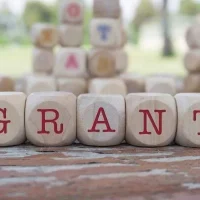Deadline: 06-Oct-21
Call for proposals are now open for the Evidence-Based Decision-Making to Change Social Norms towards Zero Food Waste.
Scope
- Food loss and waste has negative impacts on society, the environment and the economy: it contributes to food insecurity and hinders nutrition; generates greenhouse gas emissions and creates pressure on land and water, including deforestation, degradation of natural habitats and biodiversity loss; it is also responsible for great economic losses.
- Such negative impacts are exacerbated in times of crisis (e.g. COVID-19), when food supply-chain disruptions generate additional food losses and wastes.
- Reducing the amount of food intended for human consumption that is eventually lost or wasted represents a complex challenge, as it involves changing established business practices and people’s habits, while guaranteeing the safety of food.
- As demonstrated by UNEP Food Waste Index Report 2021, food is wasted mainly towards the end of the supply chain (particularly at consumption level, in households and food services).
- Here, consumer behaviour and the lack of awareness and coordination between actors in the supply chain play a key role.
- An additional issue directly linked with loss and waste is the amount of packaging that is eventually discarded with – or without – the food.
Areas
Successful proposals are expected to address two complementary areas:
- Area A:
- Developing a comprehensive evidence-based analysis of food loss and waste prevention actions, with the overall aim of informing decision-making.
- In particular, this should involve an impact assessment and cost-benefit analysis of existing food waste prevention actions in the EU and its associated countries, and of their economic, environmental and social impacts.
- This should include developing a database of actions and tools for preventing and reducing food waste and loss, which will help inform future interventions by different stakeholders and promote replicability across countries.
- The development of sector-specific guidance sharing the key success factors, barriers and data for an effective prevention and reduction of food losses and waste is also recommended.
- Area B:
- Supporting research (i.e. development of an evidence base) and innovation (with a special focus on open and social innovation) on existing social norms responsible for food waste, so as to foster appropriate changes in consumer behaviour and business practices (e.g. marketing standards, retail and trade practices, restaurant portion sizes).
Funding Information
Grant amount is equal to or greater than EUR 500 000 except for:
- public bodies (entities established as a public body under national law, including local, regional or national authorities) or international organisations; and
- cases where the individual requested grant amount is not more than EUR 60 000 (lowvalue grant).
Expected Outcomes
- In line with the European Green Deal priorities, the farm to fork strategy for a fair, healthy and environmentally friendly food system, and the EU’s climate ambition for 2030 and 2050, the successful proposal will support R&I to prevent and reduce food loss and waste, contributing to the transformation of food systems to deliver co-benefits for climate (mitigation and adaptation), biodiversity, environmental sustainability and circularity, dietary shift, sustainable healthy nutrition and safe food, food poverty reduction and the empowerment of communities.
- Projects results are expected to contribute to all the following outcomes:
- More timely and responsive decision-making on food waste prevention and reduction by any actor seeking to implement a food waste prevention or reduction initiative, based on new, comprehensive and easily accessible evidence of the impact and cost-effectiveness of different measures and behaviours at different levels and across different sectors, including consumers;
- Food companies engage more and more effectively in food waste prevention and reduction activities.
Eligibility Criteria
- Any legal entity, regardless of its place of establishment, including legal entities from non-associated third countries or international organisations (including international European research organisations) is eligible to participate (whether it is eligible for funding or not), provided that the conditions laid down in the Horizon Europe Regulation have been met, along with any other conditions laid down in the specific call topic.
- A ‘legal entity’ means any natural or legal person created and recognised as such under national law, EU law or international law, which has legal personality and which may, acting in its own name, exercise rights and be subject to obligations, or an entity without legal personality.
- To be eligible for funding, applicants must be established in one of the eligible countries, i.e:
- the Member States of the European Union, including their outermost regions;
- the Overseas Countries and Territories (OCTs) linked to the Member States;
- eligible non-EU countries:
- countries associated to Horizon Europe
- low- and middle-income countries.
For more information, visit https://bit.ly/3wlnVwW






![Call for Applications: “Voices in Motion” Program [Sri Lanka] - fundsforNGOs Call for Applications: “Voices in Motion” Program [Sri Lanka]](https://www2.fundsforngos.org/wp-content/uploads/2023/04/dance-200x200.jpg)


































